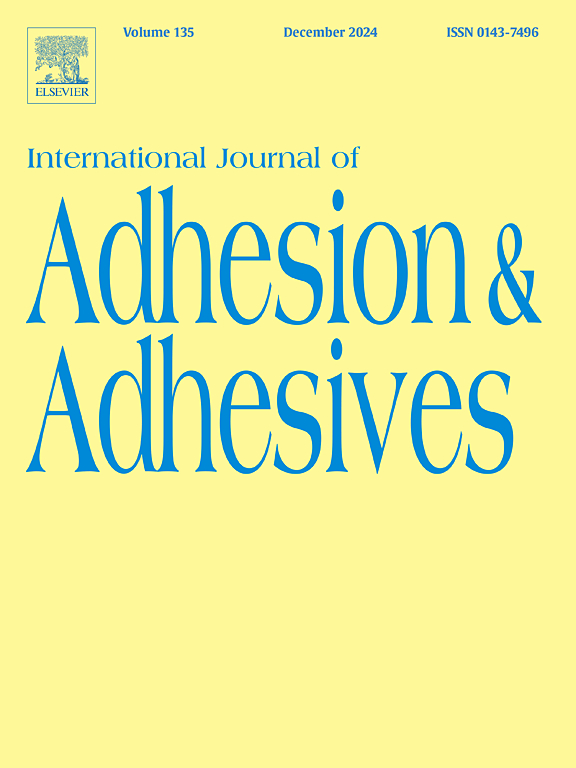One-year evaluation of microtensile bond strength of universal adhesives in Self-etch or Etch and Rinse modes to dentin groups at different caries-affected degree
IF 3.2
3区 材料科学
Q2 ENGINEERING, CHEMICAL
International Journal of Adhesion and Adhesives
Pub Date : 2024-12-07
DOI:10.1016/j.ijadhadh.2024.103919
引用次数: 0
Abstract
Purpose
The immediate and long-term microtensile bond strengths of two current universal adhesives used in self-etch (SE) or etch and rinse (ER) mode to caries-affected dentin compared to sound dentin were investigated.
Material and methods
Dentin groups were identified using the Vickers microhardness test: control group (SD), caries-affected hard dentin (D1) and caries-affected semi-hard dentin (D2). Dentin-adhesive interfaces were examined by electron microscopy (SEM). Statistical analyses were performed using two-way ANOVA, Scheffé and independent t-test (p < 0.05).
Results
It was shown that the bond strength of all adhesive systems to D2 was significantly lower than to SD (p < 0.05) and that D1 exhibited bond strength similar to SD, especially for adhesives applied in SE modes.
Conclusions
According to the results of the study, dentin hardness, adhesive type and the application mode have an effect on the long-term bond strength to dentin.
求助全文
约1分钟内获得全文
求助全文
来源期刊

International Journal of Adhesion and Adhesives
工程技术-材料科学:综合
CiteScore
6.90
自引率
8.80%
发文量
200
审稿时长
8.3 months
期刊介绍:
The International Journal of Adhesion and Adhesives draws together the many aspects of the science and technology of adhesive materials, from fundamental research and development work to industrial applications. Subject areas covered include: interfacial interactions, surface chemistry, methods of testing, accumulation of test data on physical and mechanical properties, environmental effects, new adhesive materials, sealants, design of bonded joints, and manufacturing technology.
 求助内容:
求助内容: 应助结果提醒方式:
应助结果提醒方式:


